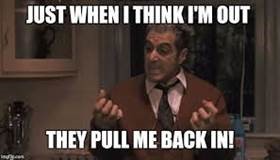
About This Blog
Sales tax is one of the most interesting, and challenging, taxes. It’s interesting because it involves clients in every possible industry. Every active business has potential sales tax exposure, no exceptions! And unfortunately sales tax compliance is particularly difficult for two, specific reasons. First, the tax is perhaps the most fact-dependent – seemingly inconsequential changes in the underlying facts can transform a nontaxable sale into a taxable one. Second, these rules are constantly changing. It’s tough enough to keep up with these changes in just one state. But many vendors, especially those selling over the internet, have to keep abreast of these changes in multiple states. So it’s easy to fall behind on sales tax compliance.
With this blog, we hope to keep you up to date on impactful changes in the sales tax compliance, especially in New York State. We’ll review legislative and administrative changes in the sales tax; we’ll discuss new sales tax case law; and we’ll highlight the enforcement initiatives and tactics we’re seeing while defending businesses in sales tax audits. We hope you find this content as interesting as we do. Please contact us with any questions.
Stay Connected
Topics
Sales Tax Cases from the TiNY Blog for the Week of March 5, 2020
Here are the sales tax cases from the TiNY blog for the week of March 5, 2020.
Sales tax is probably the “nastiest” tax. This is due, in part, to the personal liability of the individuals responsible for running a business that does not properly discharge its sales tax obligations. If a business that you run fails to collect or remit sales tax properly, the Division can look to your bank account to satisfy the business’ debt. The lone determination this week addresses whether the Division properly assessed an individual for a corporation’s sales tax liability. Because this is the only case this week, I’ll do a bit of a deeper dive.
Matter of Selvarajah; Judge: Dennis Galliher; Division’s Rep: Stephanie Scalzo; Taxpayer’s Rep: Alan Goodman; Articles 28 and 29 (by Joseph N. Endres).
I’m dubbing this “The Godfather Part III case.” The issue is whether Petitioner was a person responsible to collect and pay over sales and use taxes on behalf of a corporation that operated a restaurant and catering business in New York City. The Division audited the business, and, due to a lack of communication from the corporation during the audit, decided to simply apply tax based on the difference in the sales figures as listed on the corporation’s federal returns compared to those listed on the corporation’s sales tax return. In other words, the Division simply taxed 100% of the corporation’s sales. Let this be a lesson to all would-be audit ignorers – the ostrich defense usually results in the most aggressive audit result.
The Division then assessed Petitioner personally for the corporation’s audited sales tax liability. The Tax Law imposes personal liability on “every person required to collect” sales tax and defines the term “person required to collect” sales tax as including “any officer, director or employee of a corporation…who as such officer, director, employee or manager is under a duty to act for such corporation…in complying with any requirement of” the sales tax law.
So, was Petitioner under a duty to act for the corporation? The Division usually presents various records to demonstrate that a taxpayer had a duty to—and did act—for the business. The records may include: signed checks, signed tax returns, and information listed in corporate minutes and the entity’s formation documents. But here, Petitioner did not appear to sign checks or tax returns and claimed to have nothing to do with the operation of the corporation’s business. According to Petitioner’s version of events, he was involved with the corporation early in its formation, but then walked away from the business. So the issue confronting the ALJ was, can a responsible person simply walk away from a business? The ALJ answered this question with a resounding “no.”
In support of this conclusion, the ALJ focused on the following facts:
- Petitioner hired an accountant to form the corporation and function as its accountant;
- Petitioner took possession of the corporation’s corporate documents upon formation
- Petitioner was listed as the sole responsible person on both the corporation’s application to obtain a federal EIN and on its application to obtain a sales tax certificate of authority;
- Petitioner signed the sales tax certificate of authority and is listed on it as the corporation’s president and sole responsible person for sales tax compliance;
- Petitioner’s home address was listed as the corporation’s mailing address.
- Petitioner received compensation from the corporation for a portion of the audit period.
What’s missing from this evidence is any indication that Petitioner was actually involved with the day-to-day operation of the corporation’s business. Sure, he was involved early in the formation of the company, but is it really fair to saddle Petitioner with the corporation’s sales tax debt if he wasn’t involved with the activities that gave rise to the liability? Well, considering that he was receiving payments from the corporation (albeit less than $15,000 annually) the Judge certainly thought so. And admittedly, that’s a pretty difficult fact to square with Petitioner’s claim that he “walked away from the business.”
According to the Judge, to prevail Petitioner was required to establish by clear and convincing evidence that he was not a person under a duty to act, or that, if he was under a duty to act, he was thwarted by others in carrying out his duties through no fault of his own. The Judge recognized the well-established rule that one cannot absolve himself of liability by simply delegating authority to a subordinate, or by disregarding his own duty and leaving it to someone else to discharge.
According to the Judge, Petitioner’s early actions with the corporation show that he expressly accepted responsible-party liability. And the Judge noted that there was no evidence introduced at the hearing that demonstrated that this accepted responsibility was ever voluntarily relinquished, forcibly taken from Petitioner, or that Petitioner was thwarted or precluded by others in carrying out these responsibilities. Petitioner was present at the hearing but chose to not testify, and this may have weighed against him. The Judge succinctly sums up his conclusion, “there is no evidence to show that petitioner’s authority and accompanying responsibilities, as undertaken at the outset, were in any manner abrogated. An individual may not undertake such authority and then avoid the consequences of failing to carry out the attendant responsibilities by the simple expedient of ‘walking away’….”
So why did I name this “the Godfather Part III case”? Because it reminded me of Al Pacino’s famous line in that movie:

It seems that being a responsible person is kind of like being a Corleone. Once you’re in, you’re in…it’s tough to simply walk away.






